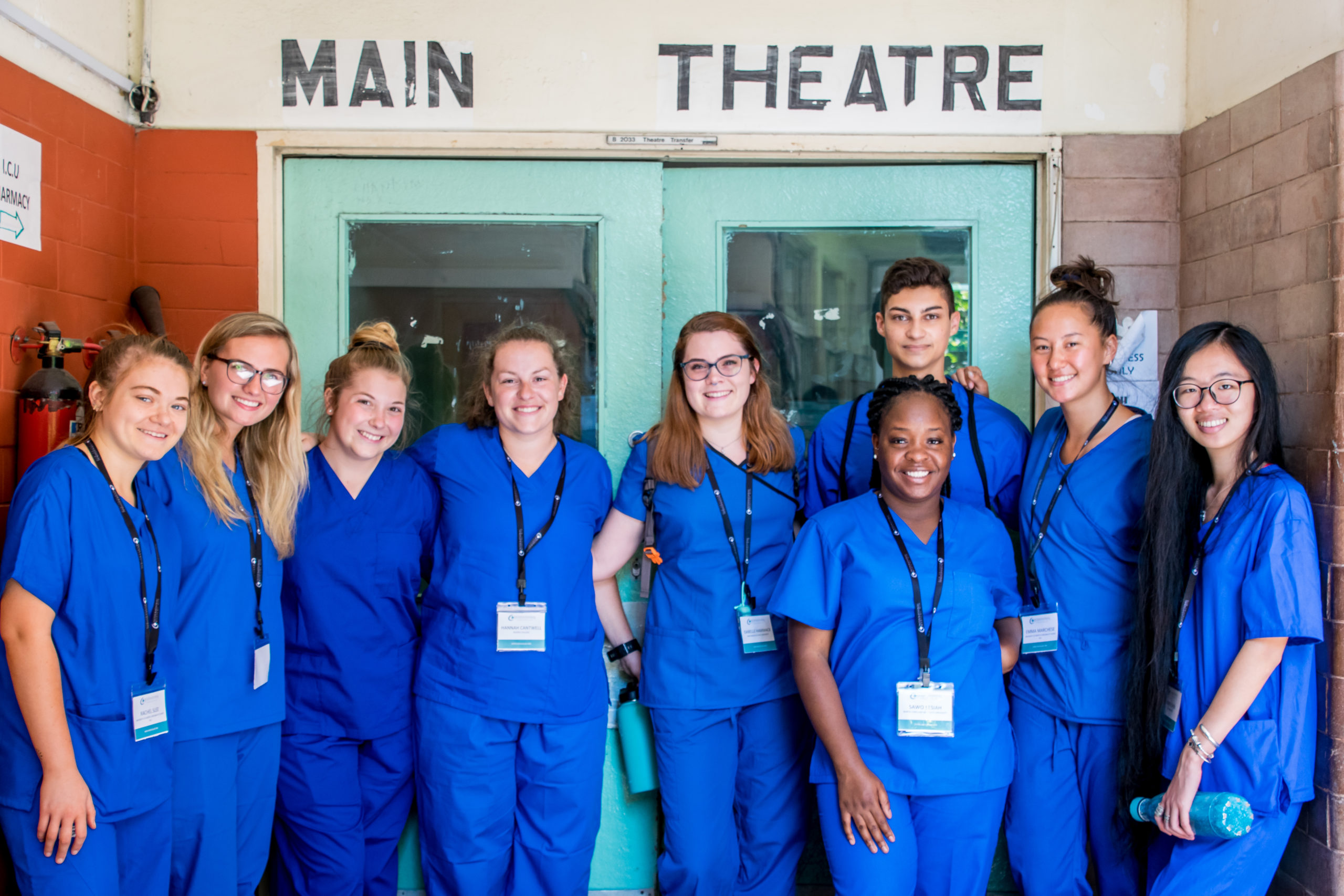Preparing for medical school can begin as soon as you know (or think) you want to be a doctor. You might not decide to go into medicine until you’re already in college. But for some of us, we know we want to be doctors from a young age. That could be at age five or age fifteen. If you’re a high school student who wants to become a doctor, then this article is for you. We’re going to discuss the importance of preparing to be a pre-med major after you’ve graduated high school.
We’ll cover:
- Strategizing and planning out your high school years
- The skills and knowledge you need to succeed
- Taking the right preparatory classes
- Asking for help when you need it
- Being an exemplary student
- Choosing your extracurricular activities
- Applying to medical school
- But what if I change my mind?
- Your future career
Plan Out Your High School Years
Strategizing and planning out your high school years is your first step toward pre-med success. That’s right. You can be pre-med in high school. That means planning your classes, extracurricular activities and volunteer time around medicine. Many dedicated physicians were pre-meds in high school.
Being pre-med in high school might lead to a BS/MD program. While the traditional medical school student graduates high school, earns an undergraduate degree and then starts medical school, BS/MD programs allow you to bypass the separate application process.
A BS/MD program grants you conditional acceptance into medical school right when you begin your undergraduate studies. Upon completing the pre-requisite courses, you start medical school. The major selling point is that you avoid the MCAT and the separate application process that most med school applicants dread going through. Only the most competitive applicants are accepted into BS/MD programs. Many are pre-meds in high school.
A BS/MD program isn’t right for everyone, though. There’s nothing wrong with taking the traditional route. If you’re currently in high school, you should start considering your options. But there’s no need to make a definitive decision until you’re halfway through high school.
Obtain The Right Skills And Knowledge
Being pre-med in high school means thinking about your pre-med undergrad years and your medical school years. Most students who are interested in medical school gain their competitive edge by looking at the admissions requirements for the schools in which they’re interested. You then tailor your skills and knowledge to those requirements.
Granted, you might change your mind. You might end up applying to different medical schools. But most medical schools require similar skill sets, so this is still a great way to gain that edge.
Here’s an example. Say you want to go to Harvard Medical School. On the admissions page, read the Before You Apply section. Harvard provides a detailed description of what they’re looking for, plus a closing statement. “A Harvard doctor is someone for whom the pursuit of excellence—both professional and personal—is a way of life. If this describes you, we encourage you to apply to Harvard Medical School.”
There will be some requirements you can’t meet yet. But there will be requirements you can meet. Examples include taking AP courses to prepare for college-level courses and gaining experience that will directly benefit your medical career.
Take The Right Preparatory Classes
So, you ask, what high school classes should I take to become a doctor? That’s what we’re going to discuss in this section.
Our first tip is to take AP classes. Advanced placement classes require more effort and demand more of your time and attention – just like your classes in medical school will. Some AP Science classes might actually meet your pre-requisite course requirements for medical school. This varies by university, though.
Next, we recommend taking the following science courses:
- AP Biology
- AP Chemistry
- AP Physics
- Accompanying labs
We’d like to take a moment to emphasize how important labs are. Textbook knowledge is one thing. But learning how to properly conduct experiments in a lab setting is very important. You’ll run tests in a lab when you’re a doctor, so it’s critical that you learn how to now.
We recommend taking these math courses:
- Pre-calculus
- Calculus
- Statistics
Many students who love science are also gifted in math. Whether or not this applies to you, these math classes are very important. Medicine often involves math. For example, many medication dosages are based on a patient’s height and weight. That makes it crucial to know how to quickly do math in your head. As you get into sophomore and junior science courses in med school, the math will also become more advanced. Knowing calculus and statistics will help you stay on top of your game and on target with your class.
The other subjects you take aren’t as important, but your grades are. Even in history class, you should pay attention and earn the best grade you can. Having all As will show that you’re a strong student. Having said that, don’t worry if you have a couple of Bs. This will not make or break your chances of getting into medical school. Consistent high scores and letter grades are what count the most.
As for the other subjects you should take, we recommend:
- English
- Communications
- Psychology
- Sociology
Why do we recommend these classes? You’ll need to read and write when you’re a doctor. You might need to research a rare condition that you suspect a patient might have. You’ll need to write notes for your medical staff. Communication is a very important part of being a good doctor, and psychology and sociology courses will help you better understand your patients and your community.
Ask For Help When You Need It
Science and math classes can challenge the best of us. As you get into higher-level courses, you might find yourself needing some help. Don’t be afraid to ask for help if you need it! The best doctors in the world once asked their high school teachers for help, especially in AP Biology!
Asking for help is a sign of strength. Some students feel stupid or dumb when they need help. But asking for help opens the door to learning more. Your teachers are there to both teach and tutor you. Now, not every student will need after-school tutoring. But the same concept applies to asking your teacher a question after class. They’re there to help you.
There’s another reason to ask for help. For math and science classes, concepts build on each other. If you don’t understand a concept, it can affect your understanding of more complex topics. We highly recommend learning everything you can while you’re in high school. You won’t have the same opportunities for one-on-one time in college because of the larger class sizes and the faster pace. You’ll cover three times as much material in one semester at college as you will in one school year in high school. The firmer your foundation early on, the better your success later in college.
Be An Exemplary Student
Not only is it important to ask for help, but it’s important to be an exemplary student. Being exemplary will help you stand out in the best way possible. But it’s not just about earning good grades and knowing when to ask for help. It’s also about your attitude, demeanor and classroom etiquette. If your teacher asks for a volunteer, raise your hand. If you’re put into groups for a project, do your part and offer to help your group mates.
That kind of behavior is important because it will make you stand out in the best possible way. Your teachers will notice you and appreciate your behavior. You’ll probably need letters of recommendation from a few of your teachers for your college applications. Teachers are happy to provide letters of recommendation for excellent students.
Take The Right Extracurriculars
Extracurricular activities are a great way to explore your interests. Some interests will just be hobbies to engage in during your free time. But some interests turn into careers. For example, joining a book club could lead to working as a part-time columnist for your local newspaper. Learning how to knit could turn into running your own Etsy shop.
That’s why we recommend volunteering in a hospital or clinical setting. We specifically recommend these settings for two reasons. First, doctors spend a lot of time with patients. You’ll need to be comfortable interacting with people. Second, you’ll be able to observe doctors, PAs, nurses and other medical personnel in action. Seeing them in action will help you decide if you really want to be a doctor.
If for some reason, you’re unable to volunteer at a hospital or doctor’s office, we recommend spending your time at a nursing home or assisted living center. If you think you want to be a pediatrician, volunteer at your local library for some children’s activities. We suggest these volunteer activities because you’ll interact a lot with others. It’s hard to really know what you want to do for your career without immersing yourself in it or in activities that give you a taste of it.
We also recommend becoming a CNA or EMT if you want more hands-on experience. CNAs and EMTs are trained to provide medical assistance. They aren’t limited to shadowing. Spending volunteer hours on an ambulance will really show how much you love medicine.
Another option is to go on a summer internship. International Medical Aid provides students with voluntary healthcare internships abroad. You’ll get to volunteer and shadow medical professionals at hospitals across the globe. Voluntary healthcare internships abroad will provide you with an experience like no other. You’ll be completely immersed in the medical field. By the time you go home, you should have a good idea of whether medicine is the right field for you.
Voluntary healthcare internships abroad also give you valuable insight into how different healthcare systems work. This might pique your interest if you’re thinking about a career in public health. Many students combine their passions and pursue dual-degree programs that allow them to work in medicine and the community.
Look At Medical Schools
The final way you can prepare for medical school is through looking at medical schools. Looking at medical school programs will give you an idea of where you might want to go. It can motivate and inspire you to do your best so you can make your dreams come true. Not sure where to look? Check out our list of schools at the end of this post.
Having said that, don’t pressure yourself into applying for medical school before you’re ready. Unless you’re applying to BS/MD programs, know that you have plenty of time. And for traditional (non-BS/MD) students, we don’t recommend picking a specialty just yet. You might have an idea of what you want to do, but your ideas might change. That’s perfectly okay. In fact, it’s normal. Explore your ideas, but be open to changing your mind.
What if I change my mind?
There’s a chance that you’ll do everything right but then decide that being a doctor isn’t the right career choice for you. It’s okay if that happens. You might feel like you’ve wasted your time preparing, but that couldn’t be further from the truth.
In fact, if you’ve aced your classes and involved yourself in extracurriculars, then you’ve set yourself up for success all the way around. Medical school admissions committees aren’t the only committees that are looking for students at the top of their game. Those are the kinds of students who get into Harvard, Yale, Stanford and other Ivy League universities.
So, don’t worry about changing your mind. You’re setting your future self up for success by caring right now.
Your Future Career
Is it all a little overwhelming to think about? We get it. Medical school is a lot to tackle. That’s why International Medical Aid offers medical school admissions consulting services. Through our medical school admissions consulting, we offer help for every part of the medical school application process.
From filling out your AMCAS, AACOMAS or TMDSAS application, to writing your personal statement and secondary essays, we’re here for you. We can also provide general strategy and guidance for high-school and undergraduate pre-med studentsPlease don’t hesitate to reach out to us if you need help.
As promised, here’s the list of schools that we’ve covered so far as part of our definitive series to getting into medical school.
- UC Davis School of Medicine
- Harvard Medical School
- UC Riverside School of Medicine
- USC Keck School of Medicine
- UT Southwestern Medical School
- Long School of Medicine at UT Health San Antonio
- University of the Incarnate Word School of Osteopathic Medicine
- UT Austin’s Dell Medical School
- UTMB School of Medicine
- McGovern Medical School at UT Health
- Johns Hopkins School of Medicine
- McGovern Medical School at UT Health
- The University of Texas Rio Grande Valley School of Medicine
- UNT Texas College of Osteopathic Medicine
- University of Houston College of Medicine
- Texas A&M College of Medicine
- Johns Hopkins Medical School
- Baylor College of Medicine
- George Washington University School of Medicine
- Vanderbilt University School of Medicine
- St. George’s University School of Medicine
- Lake Erie College of Osteopathic Medicine (in Pennsylvania)
- Sidney Kimmel Medical College at Thomas Jefferson University
- Wake Forest University School of Medicine
- Western University of Health Sciences (in California)
- Drexel University College of Medicine
- Stritch School of Medicine at Loyola University Chicago
- Georgetown University School of Medicine
- Yale School of Medicine
- Perelman School of Medicine
- UCLA Medical School
- NYU Medical School
- Washington University School of Medicine
- Brown Medical School
Good luck being a pre-med student while you’re in high school! We know you’ll do great. We’re proud of you for reaching for your dreams.





